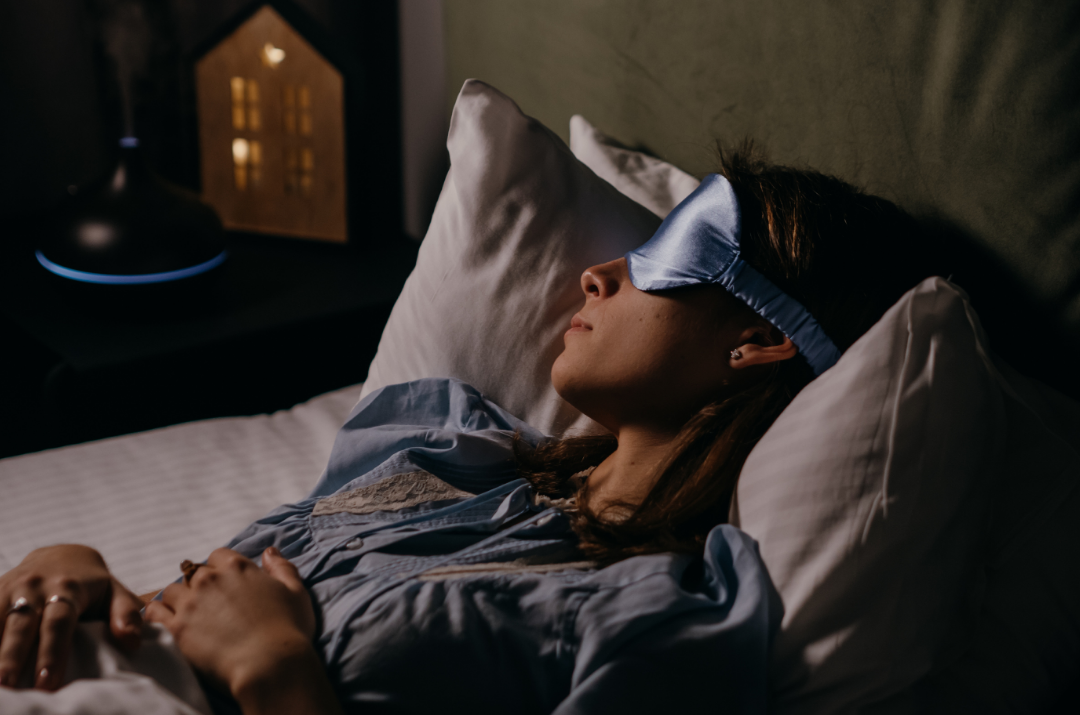The Power of Recovery: Sleep, Stress & Self-Care in Midlife
Jun 30, 2025
Why Recovery is Essential
Midlife is a time of profound change—physically, mentally, and emotionally. As responsibilities increase and energy feels harder to maintain, prioritizing sleep, stress management, and self-care becomes non-negotiable for long-term health and vitality.
Yet, many struggle with:
❌ Sleep disruptions due to hormonal shifts
❌ Chronic stress from work, family, and life demands
❌ Neglecting self-care, leading to exhaustion and burnout
Recovery isn’t about luxury—it’s about resilience and longevity. When you optimize recovery, you:
✔ Feel more energized and mentally sharp
✔ Improve hormone balance and reduce inflammation
✔ Prevent chronic stress from depleting your health
Let’s dive into practical, science-backed strategies to reclaim deep sleep, reduce stress, and create self-care rituals that truly nourish you.
Sleep: The Foundation of Recovery
Sleep is your body’s reset button, but midlife often disrupts natural rhythms. If you wake up exhausted despite getting 7+ hours, your sleep quality—not just quantity—may need attention.
Common Sleep Challenges in Midlife
🌀 Hormonal Disruptions → Lower estrogen affects deep sleep; lower progesterone makes falling asleep harder.
🔥 Hot Flushes & Night Sweats → Sudden overheating can repeatedly wake you up.
📱 Poor Sleep Hygiene → Screens, late meals, and inconsistent sleep routines disrupt sleep quality.
Action Plan for Better Sleep
|
Challenge |
Strategy |
Reflection |
|
Difficulty Falling Asleep |
Set a consistent bedtime, try the 4-7-8 breathing method. |
"Did this help me fall asleep faster?" |
|
Waking Up at Night |
Keep the room cool, use layered blankets, avoid alcohol before bed. |
"How often did I wake, and how did I feel?" |
|
Hot Flushes |
Wear moisture-wicking pajamas, use a cooling pillow, avoid caffeine. |
"Did this reduce the intensity of hot flushes?" |
Quick Sleep Optimization Tips
✔ Cooling Strategies: Use breathable sheets, lower bedroom temperature, and keep a bedside fan.
✔ Relaxation Techniques: Practice 4-7-8 breathing or use guided meditation apps like Calm.
✔ Natural Sleep Aids: Consider magnesium glycinate or melatonin (consult your doctor first).
Sleep Challenge: Try tracking your sleep for a week and making small changes—improved sleep can transform how you feel every day.
Stress: Managing the Overflowing Bucket
Stress is inevitable, but chronic stress leads to:
❌ Weight gain (especially around the belly)
❌ Increased cortisol, impacting sleep and energy
❌ Emotional burnout and heightened anxiety
Midlife presents an opportunity to manage stress differently—by setting boundaries, simplifying commitments, and adopting tools to “empty the stress bucket” before it overflows.
Practical Stress Management Tools
🧘 Daily Micro-Breaks → Take a 5-minute walk, stretch, or practice deep breathing.
🔄 Reframe Stress → Replace "I'm overwhelmed" with "What’s one thing I can control right now?"
📖 Journaling Prompt → "What are my biggest stress triggers, and how can I reduce them?"
How Stress Affects the Nervous System
Your nervous system has two modes:
1️⃣ Fight or Flight (Sympathetic) → The "on" switch for stress and cortisol spikes.
2️⃣ Rest & Digest (Parasympathetic) → The recovery mode for deep relaxation.
Chronic stress keeps you stuck in "fight or flight" mode, leading to fatigue, brain fog, and hormonal imbalances.
Ways to Activate the Recovery Response
✔ Vagus Nerve Stimulation → Humming, deep breathing, or singing can switch your body into relaxation mode.
✔ Evening Wind-Down Routine → Avoid screens 1 hour before bed, stretch, and drink calming herbal tea.
✔ Adaptogens for Stress → Ashwagandha, Rhodiola, or L-Theanine (consult your provider).
Self-Care: Refilling Your Cup
Midlife is often filled with caregiving—children, aging parents, demanding careers—leaving little time for yourself. But self-care isn’t selfish; it’s an investment in your mental and physical well-being.
The Self-Care Menu
|
Time Available |
Self-Care Idea |
|
5 Minutes |
Deep breathing, gratitude journaling, or stretching |
|
30 Minutes |
Brisk walk, restorative yoga, or reading |
|
1 Hour |
Massage, long bath, or creative hobby |
📌 Reflection Prompt: "What does my body, mind, and heart need most today?"
Daily Self-Care Practices
💡 Morning → Hydrate, stretch, set an intention for the day.
💡 Midday → Take a short outdoor break, eat nourishing food.
💡 Evening → Disconnect from screens, journal, unwind with a book or warm tea.
Your Recovery Action Plan
🔹 Sleep Challenge: Track your sleep and make one improvement this week.
🔹 Stress Reset: Try one stress-reducing practice daily (breathing, movement, mindset shift).
🔹 Self-Care Commitment: Schedule one self-care ritual (massage, hobby, time with loved ones).
✨ Midlife is a time of transformation, not depletion. By prioritizing sleep, stress management, and self-care, you reclaim energy, resilience, and well-being—without guilt.
🔹 Your Turn! What’s one small recovery habit you can start today? Let’s commit to thriving, not just surviving.
Book a Balance Assessment Today!
If you’ve noticed unsteadiness, or a fear of falling, let’s build your confidence with expert-led physiotherapy sessions.
Get Your Free Guide to Strength & Mobility for Midlife
Download - "5 Best Strength Exercises for Midlife"
We hate SPAM. We will never sell your information, for any reason.





